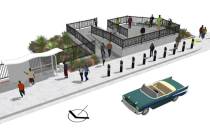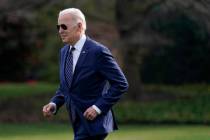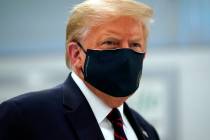Nevada Assemblyman Sprinkle to take another shot at Medicaid buy-in law

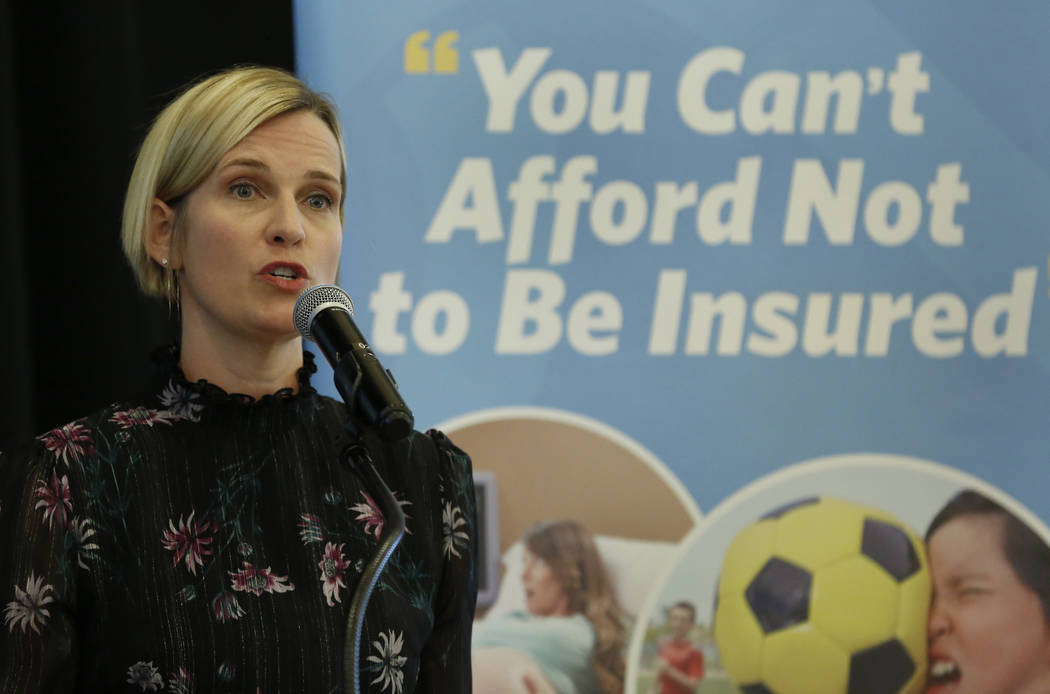

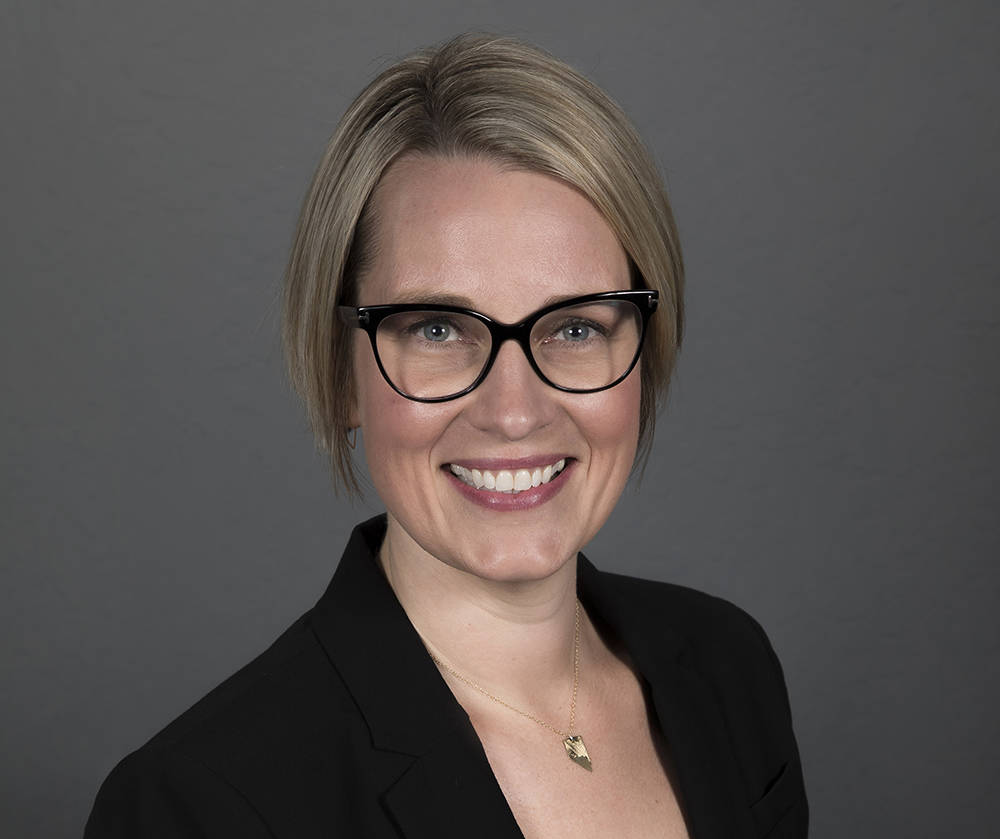
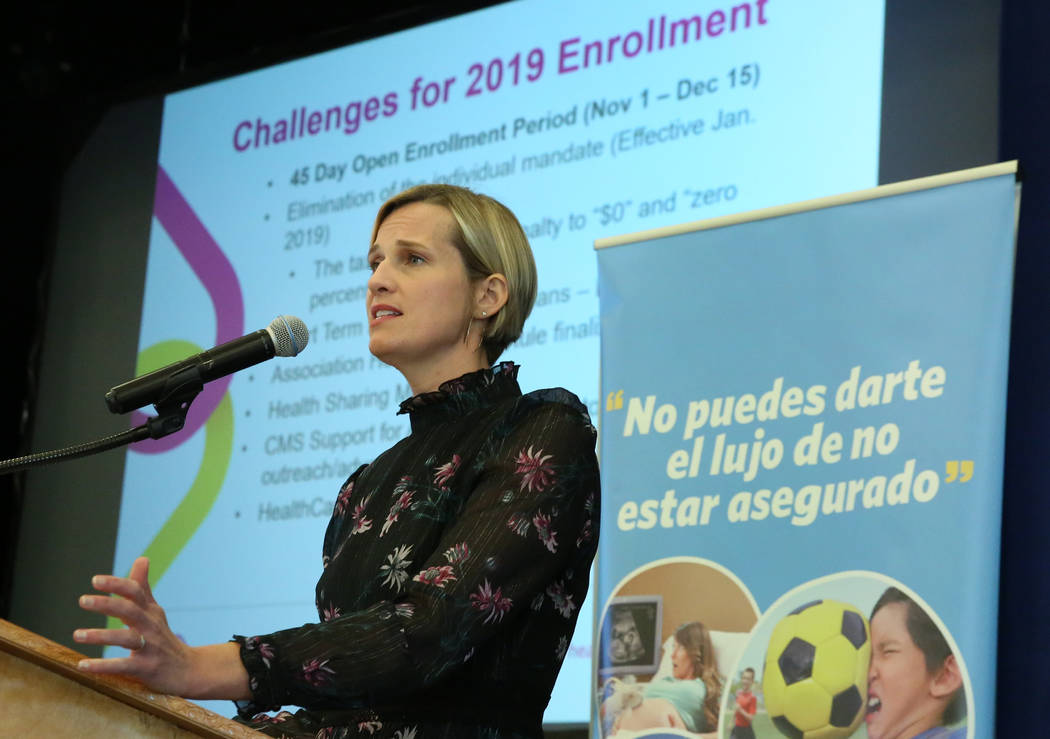
Sprinklecare is back.
Assemblyman Michael Sprinkle, D-Sparks, plans to introduce a bill this legislative session that would create a Medicaid buy-in option for all Nevadans, after a similar proposal passed in the state Assembly and Senate but fell at the hands of former Gov. Brian Sandoval in 2017.
Sprinkle, whose idea became popularly referred to as Sprinklecare, said the concept hasn’t changed much since then.
“This will be an insurance plan that will be a mirror image of our current Medicaid program,” Sprinkle said. “Any person that isn’t currently eligible for Medicaid can choose to purchase this plan at any other cost.”
The bill draft is pending, and even after it’s introduced, the language will likely change. Sprinkle said he expects that participants would pay a monthly premium to Medicaid that would cover their costs of care.
In other words, the state program would administer the plan and reimburse providers using the monthly premium. Sprinkle said he’s not sure yet how the agency would handle cases in which a patient’s costs of care exceeds the premium that person paid. Medicaid administrator Suzanne Bierman said it’s too soon to talk details.
“I think without knowing more specifics in terms of how many people would qualify and what sort of program we’re talking about, it’s hard to sort of predict and project,” Bierman said.
The middle-class rural residents
Sprinkle said he’s not sure whether the bill would narrow to a subset of the population, though he thinks it may benefit middle-class people living in rural Nevada.
“I say that specifically because we only have one insurance provider in our rural counties right now on the (Silver State Health Insurance) Exchange,” he said, referring to Centene Corp.’s SilverSummit health plan. “This would definitely be geared towards people like that to give them an option.”
People who aren’t insured through an employer and don’t qualify under the income limit for Medicaid can buy insurance on the exchange, the state’s health insurance marketplace that sells what are referred to as comprehensive plans, or plans that abide by the mandates of the Affordable Care Act. There are a few off-exchange options, too.
Of the nearly 83,500 Nevadans who purchased a 2019 plan through the exchange, about 84 percent received subsidies to help pay their plan premiums, exchange director Heather Korbulic said.
She said that only about 2.2 percent, or 1,800 consumers, fell above 400 percent of the federal poverty level, Sprinkle’s target income group. And Korbulic didn’t have data to suss out which of those 1,800 were also living in rural areas where there was only one insurance carrier in the marketplace.
And of Nevada’s 9 to 11 percent uninsured — different outfits produce varying analyses — most are undocumented or have an immigration status that bars them from participating in Medicaid, buying a plan on the exchange or qualifying for subsidies, Korbulic said. Technically, a state could pass a law that helps those immigrants get connected to health insurance, but Sprinkle hasn’t signaled whether he intends to try to do so.
“If we’re going to be data-driven in policymaking, we should identify areas of uninsured consumers and find out how to connect them to an insurance product,” Korbulic said.
Access to coverage isn’t access to care
Physicians statewide consistently raise concerns that reimbursements under Medicaid don’t match the cost of providing care. To offset the loss in revenue, most doctors who accept Medicaid patients put a cap on the number they’ll serve and save the rest of their spots for the privately insured, whose carriers typically pay physicians more, said Catherine O’Mara, director of the Nevada State Medical Association.
“If you have an insurance plan but you don’t have providers on the other side of it, is it really meaningful coverage if you can’t access care?” O’Mara said.
On average, there are 1,760 Nevadans for every primary care provider, according to an analysis by the Robert Wood Johnson Foundation. In some rural areas, access issues are exacerbated. In Lyon County, there are 5,840 residents per provider, the analysis showed.
Korbulic said the focus should be on ensuring affordability. Plans on the exchange are too expensive for many people who don’t receive subsidies.
Sprinkle his proposal likely won’t tackle the issue of affordability.
“Certainly that’s a concern,” he said.
National attention to health care
When Sprinkle introduced the bill in 2017, the idea was revolutionary. There’s still no state that allows any person at any income level to participate in the primarily federally funded, state-based insurance program.
But nationwide, politicians are proposing solutions to the high cost of health care in the U.S.
New Mexico’s Legislature will consider a similar concept this session in a bill drafted by three Democratic state representatives.
Democratic politicians have voiced support for “Medicare for all,” or single-payer health care, including U.S. Sen. Kamala Harris of California, who has expressed support for wiping out private insurers in favor of a public option.
When former Republican Gov. Brian Sandoval vetoed Sprinkle’s bill in 2017, he wrote in his veto that the language in the bill was too vague.
“AB 374 raises more questions than it answers, while adding more uncertainty to an industry that needs less,” Sandoval said.
Despite Nevada’s new democratic leadership, Gov. Steve Sisolak said during a recent event hosted by the Nevada Independent that he may have made the same choice as the former governor. A statement from his office Friday said he looks “forward to working with the Legislature and stakeholders to review all options on the table.”
“I think it’s a bigger problem than can be handled in one session,” he said at the Nevada Independent event in late January. “I’d like to get business and I’d like to get labor and I’d like to get the health-care professionals together and say, yes, this will work, as opposed to having people, after it’s passed, trying to fight to make it not work, and that’s a big concern for me.”
Contact Jessie Bekker at jbekker@reviewjournal.com or 702-380-4563. Follow @jessiebekks on Twitter.




